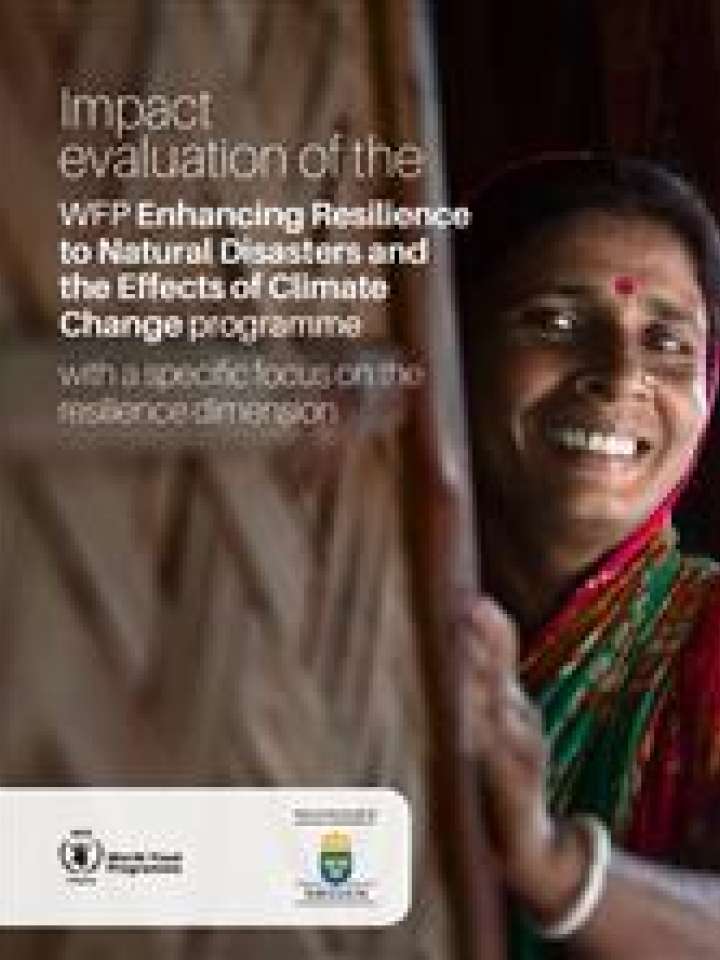Impact evaluation of the WFP Enhancing Resilience to Natural Disasters and the Effects of Climate Change Programme
This assessment draws on recent conceptual advances made in the understanding of resilience in the context of food security, where resilience is understood as “the ability of individuals, households, communities, institutions or higher-level systems to adequately deal with shocks and stressors”.
In the absence of any resilience baseline data, an ex-post treatment versus control approach was adopted where the responses and ability to recover from shock/stressors of the Enhancing Resilience (ER) treatment group were compared to the responses and ability to recover of control households. The impact evaluation was constructed around two hypotheses:
- Hypothesis 1 at the outcome level, ER-beneficiaries were expected to show lower propensity to adopt detrimental responses and higher propensity to adopt positive responses;
- Hypothesis 2 at the impact level, ER-beneficiaries were expected to show faster recovery rates than households in the control group.
Although treatment households reported to be more exposed to shocks/stressors, they appear to display a statistically lower propensity to engage in detrimental responses
The beneficiaries show faster recovery rate from different shocks than the nonbeneficiaries and the result is statistically significant in the case of cyclones.
In conclusion, the analysis demonstrates that the ER programme contributed positively to strengthen household capacity to better handle shocks and stressors by altering positively their ability to avoid engaging into detrimental coping strategies when faced with shocks and stressors.
Explore further
